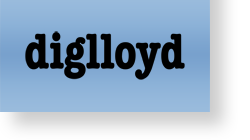‘Replication crisis’ spurs reforms in how science studies are done
Update Dec 2022: as far as I can tell, science has only grown more corrupt, more political, and more follow the money. Science you can trust is dead.
“Lies, damn lies, and statistics”, now “Lies, damn lies, and scientific studies”?
I’ve long been suspicious of scientific studies which trumpet new findings, yeah or nay on whatever issue. In my view, both confirmation bias and cognitive dissonance hold tremendous sway over the scientific community, particularly in the area of health and medicine. Fundamentally, science is about making every effort to disprove a hypothesis, but too often (especially in the medical field) it becomes an attempt to prove one’s hypothesis—think statins and nutrition.
Science News reports in ‘Replication crisis’ spurs reforms in how science studies are done:
That’s the conclusion of a research team, led by Caltech economist Colin Camerer, that examined 21 social science papers published in two major scientific journals, Nature and Science, from 2010 to 2015. Five replication teams directed by coauthors of the new study successfully reproduced effects reported for 13 of those investigations, the researchers report online August 27 in Nature Human Behavior. Results reported in eight papers could not be replicated.
...
One reason for that trend is that scientific journals have tended not to publish studies that disconfirm previous findings, leaving initial findings unchallenged until now, says study coauthor and psychologist Brian Nosek of the University of Virginia in Charlottesville. Even the most prestigious journals have often published results that garner lots of scientific and media attention but that could easily have occurred randomly, he says.
WIND: 13 of 21 is a lousy track rcord that IMO makes new scientific findings dubious at best until confirmed by at least two more independent studies. The quest for money (funding) or religious dogma (climate science) or recognition IMO too often clouds judgment and a healthy skepticism.
* This is not a replication issue but bears on the issue: I am incensed at epidemiological numbers like BMI, which rated me borderline obese at 10% body fat. It is apparent to me that doctors and scientists, smart as they are, too often fail to comprehend that it is medically and intellectually incompetent to apply a statistical finding to an individual. Yet the first thing most doctors do is take height an weight for BMI.
Treating individuals as averages of scatter-plots ingores reality*, ignores genetics, ignores microbiome, ingores causal or relevant factors (“corrected for”... the obvious), assumes falsehoods (see “Eggs” below), etc. You cannot study something by ignoring reality, the microbiome being the latest desert-wasteland of knowledge which surely undermines vast numbers of purportedly valid studies, and showing the idiocy of things like glycemic index.
Eggs
I like eggs a lot, but I have them maybe once a week. Witness the huge leap in reasoning in Are Eggs Bad for You? Two Scientists Square Off. IMO, this “no on eggs” doctor has serious credibility issues in issuing a blanket recommendation for statins, conflating average results with what is best for an individual, stating:
I recommend limiting eggs to special occasions and taking a statin—a miracle drug that is to atherosclerosis what penicillin is to infectious diseases—along with the egg!
Comparing statins to penicilllin is at best an idiotic analogy—analogies have no relevance to facts.
That statins are 100% harmless seems to be 100% false base on what I have read (including my mother, who had side effects an abandonded statins and she is a very healthy 76). That statins may impair mental function and have other health issues does not seem to occur to this doctor (IMO, he is incompetent to issue advice for an individual given his blanket recommendation in a widely read publication—it shows poor judgment in confusing epidemiological findings withi individualized medicine).
I give the “no on eggs, yes on statins” doctor a poor to injurious “jackass” rating in possibly damaging the health of his patients. From The role of statins in both cognitive impairment and protection against dementia: a tale of two mechanisms in Feb 2018:
The current literature supports the hypothesis that statins are potentially responsible for both reversible short-term cognitive impairment as well as a decreased risk of dementia.
So statins are bad (cognitive impairment!!!!!!) and good (decreased risk of dementia), on an epidemiological basis—an irresponsible metric for an individual. And the science seems to be in question too!
How can you ever trust a doctor willing to make a blanket “miracle drug” recommendation? Have him take double the dose of his wonderful statins for a year, then let’s see if his tune changes. Fom the “yes on eggs position, a Ph.D. professor in the department of nutritional sciences at the University of Connecticut, Storrs):
A vast amount of research has clearly proved that there is no correlation between consuming eggs and increased risk for heart disease. The U.S. Department of Agriculture agrees, and, accordingly, in its latest dietary guidelines, released in January 2016, no longer recommends an upper limit for cholesterol in one’s diet.
Two important points: First, there is no direct link between cholesterol levels in the blood and eating foods with cholesterol. Cholesterol that we eat doesn’t necessarily end up in our blood because our digestive system eliminates most of it. The average person absorbs into their bloodstream only 20% to 60% of the cholesterol they eat, and some absorb as little as 5%.
...One epidemiological analysis determined that there is no difference in risk when comparing people who ate no eggs with people who ate more than seven eggs a week
Note the “some individuals” point with huge variation in absorption of cholesterol: does the “no on eggs” doctor have the right to possibly damage the health of some of his patients by ignoring this individualized response and prescribing a foreign substance from Big Pharma (statins) to his patients? I deem it irresponsible or at best lazy/incompetent. The average patient will just take the (bad) advice, and what are the chances a cardiologist will track mental function in any meaningful way?
Nephrologist Franklin K writes:
"Results reported in eight papers could not be replicated. "
Not a new fact, all a long my professional life as a nephrologist I observed the same facts. For instance, in chronic renal failure, hyperparathyroidism is a consequence with very high level of the implicated hormone: PTH The very famous New England Journal of Medicine - which I go on reading after more than 40 years published a paper where it was said that taking an H2 inhibitor of gastric acide secretion would cure high level of PTH; Damn false !! Nobody was able to replicate this study (remember: NEJM !!) -
"It is apparent to me that doctors and scientists, smart as they are, too often fail to comprehend that it is intellectually incompetent to apply a statistical finding to an individual."
Because they forget a very important point. It lasts for years and is going on. Finding a statistical relationship describes nothing but a population behavior in a special situation. AND, AND, you never, never can state that every people/patient in this population should behave as wanted. I mean statistics is statistics and NEVER equal biologic considerations.
"One reason for that trend is that scientific journals have tended not to publish studies that disconfirm previous findings"
Not untrue but not systematic. I have been searching a drug able to minimize cardiomyoptahy in renal failure. My team and I tried perindopril. « white cabbage » !! I published it after acceptation of American Journal of Neprology.
"Eggs and choleterol"zz
For more than 60 years we have been living under the « Framingham study law ». Cure hypertension, lower cholesterol and your patients will live longer they say. But… not completly true. I explain. For arterial hypertension, it is absolutly true, definitively true. No discussion. If your blood presse is under or equal to 135/85, cardiac infarction, cerebral stroke, renal impairment lower dramatically
But, for cholesterol … weird, weird, apart familial hypercholesterolemia type I (a real shit), it has NEVER been proved that lowering cholesterol prevent a coronary issue or a cerebral stroke.
On the other side, it is PROVEN that cognitive impairment is very often seen with statin prescription because cholesterol is absolutly needed by brain - and statin are very, very efficient and soooo juicy for Big Pharma.
Moderation about statin: prescribing low dose e.g. Atorvastatin 10 mg has a proven effect on arterial wall (I have hypertension and use it for years) The Framingham study law is a good thing for pharmaceutical industry: it can be checked every day.








